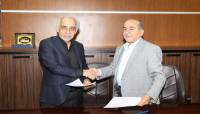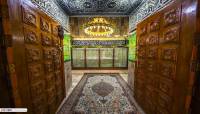The representative of the Shia Muslim Supreme Religious Authority, sayyid Ahmed Essafi, praised the efforts made by the Hussainian groups of volunteers in terms of offering free services to Arba’een pilgrims. Essafi said that during the Friday’s sermon he delivered at the Imam Hussain Shrine on Friday, October 19, 2018, calling the Hussainian service volunteer groups to be the role models for others in everything.
He added, “Those who sacrifice their efforts and money to serve the Arba’een pilgrims are – for certain – willing to sacrifice themselves, if that is needed.”
Essafi noted that the Hussainian service volunteer groups represent the sublimest benefaction, saying, “They have accustomed themselves and their children to practicing benefaction—this is in itself God’s blessing bestowed upon them through serving Imam Hussain (Peace Be Upon Him) and his pilgrims.”
He said further that Imam Hussain (Peace Be Upon Him) represents every virtue, and the Hussainian service volunteer groups should be virtuous and take care of public properties during practicing the Hussainian rites and serving pilgrims, for that reflects a bright image of those who serve Imam Hussain (Peace Be Upon Him) and his pilgrims.
Narrations – Essafi mentioned – instruct and encourage people to make a pilgrimage to Imam Hussain (Peace Be Upon Him), and said that the Hussainian service volunteer groups are truly compliant with those narrations, emphasizing the importance of practicing the Hussainian rites sorrowfully.
Essafi concluded, instructing pilgrims, saying, “Arba’een pilgrims coming to the holy city of Kerbela should feel that they are like the family of Imam Hussain (Peace Be Upon Him) who, had been taken captives to Syria, came to the holy city of Kerbela to make a pilgrimage to Imam Hussain (Peace Be Upon Him)—the master of all martyrs,” stressing the importance of expressing sadness and reminding others of what had happened to Imam Hussain’s family (Peace Be Upon Them), for this event (The Arba’een Pilgrimage) has great lessons.
Edited by: Wela’ Esseffar
Translation: Mohammed Alobaidi

















اترك تعليق